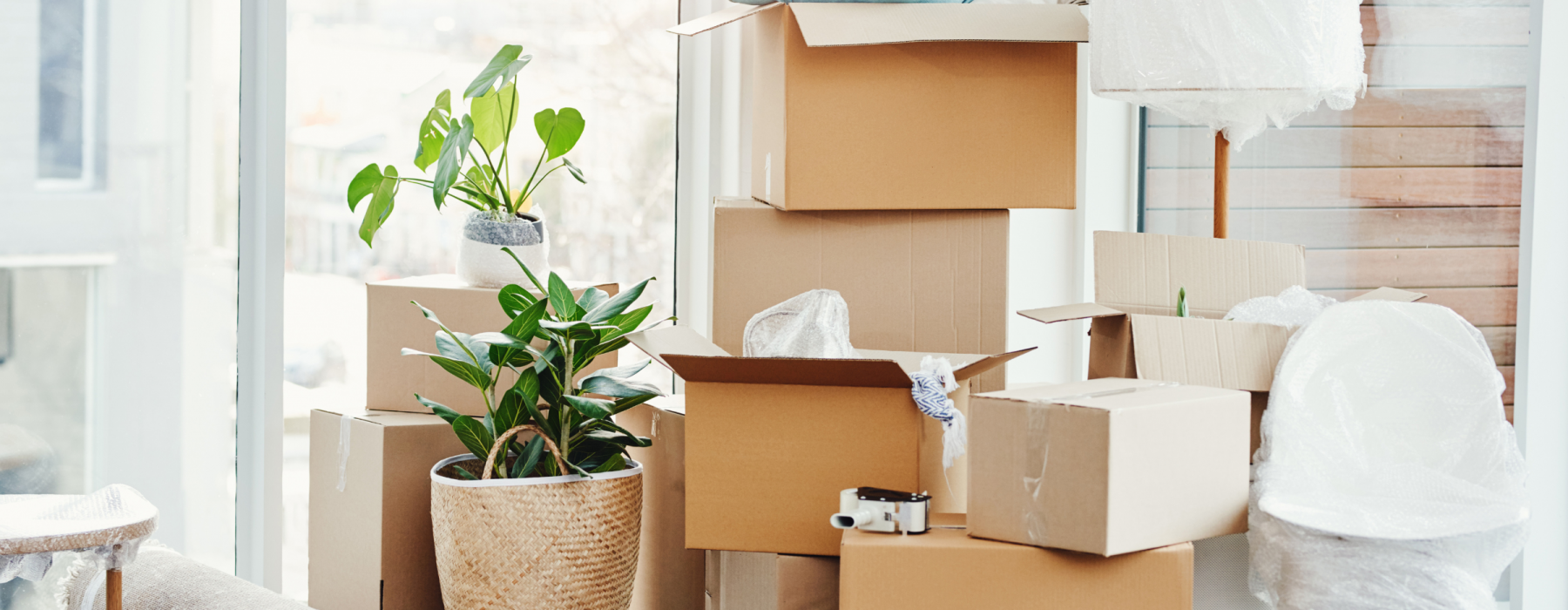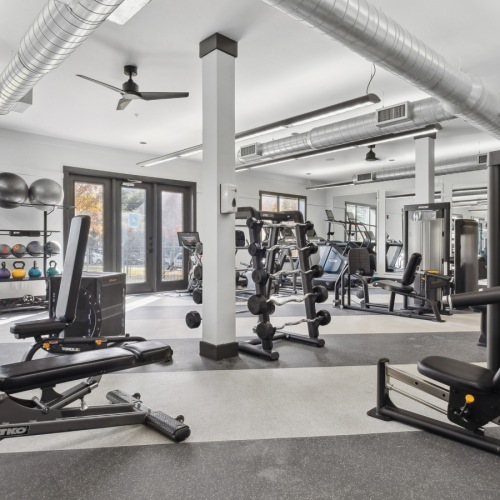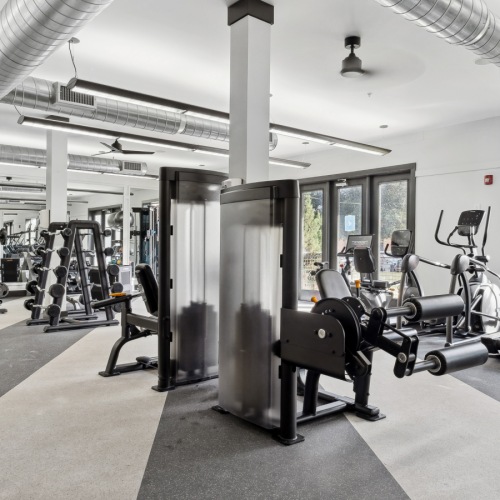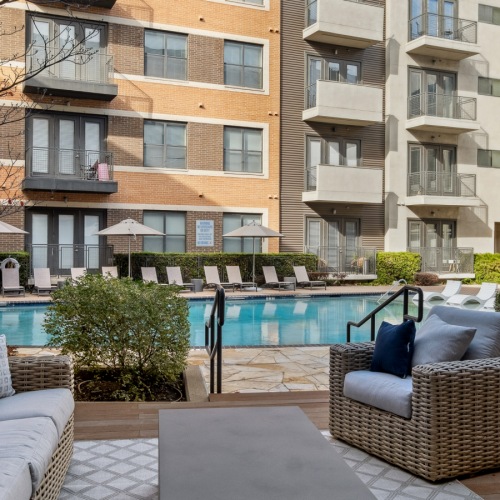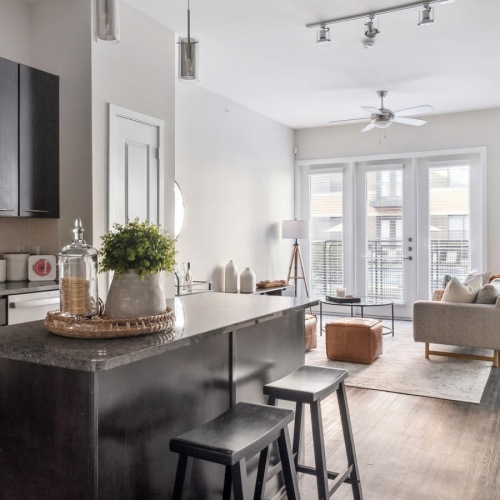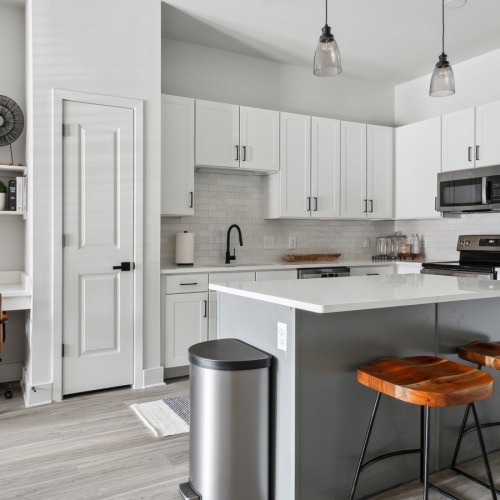You can enter the "get to know you" phase with each potential home by being prepared with the correct questions to ask when viewing an apartment. This gives you the ability to determine whether the location and the management firm are a good fit and assures that the time you invest viewing a possible rental isn't wasted.
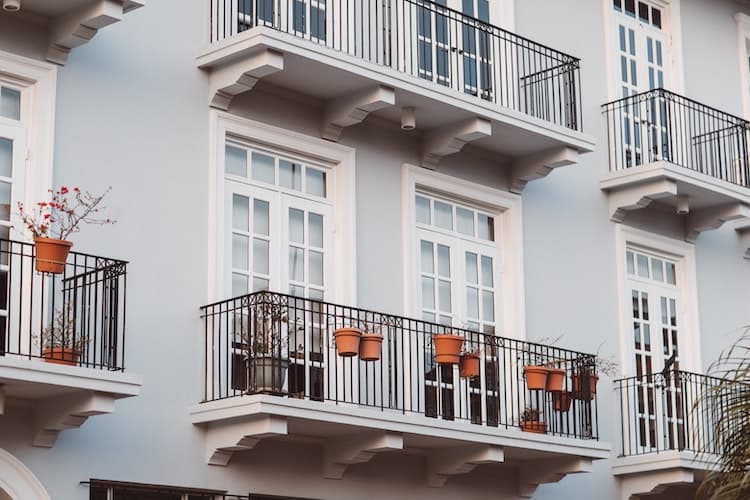
If you’re looking for the perfect apartment to synergize with your ideal lifestyle, get in touch with Dunhill Design District. Our professionals offer the support and guidance you need to find a gorgeous apartment with resort-quality amenities for your next move!
The greatest time to have all your questions addressed is when you first visit a place. Uncertain of what to say? The top 15 queries to ask during an apartment tour are listed below.
#1 What is The Monthly Rent?
Knowing if the home you're considering actually fits within your budget is crucial. Find out the monthly cost of the apartment and the manager's stance on payment schedules. By asking about the landlord’s rental grace period or payment flexibility, you can be confident your new apartment is coherent with your financial capacity.
Ask about any additional costs and how much cash you need to bring when signing the lease. In addition to the security deposit and sometimes the first and final month's rent, there may be other expenses.
Ask whether there are any upfront costs that may be rolled into your monthly rate if they are too expensive to pay all at once.
#2 What Are The Conditions of The Lease?
Before you even begin asking questions when taking a tour of an apartment, you should ideally already be aware of the start and end dates of the lease. If for any reason you aren't, be sure to ask for clarity on the date of move-in and the length of the lease.
Find out whether there are any additional common lease provisions, such as quiet hours, pet flexibility, or limitations on painting and renovation that you should be aware of.
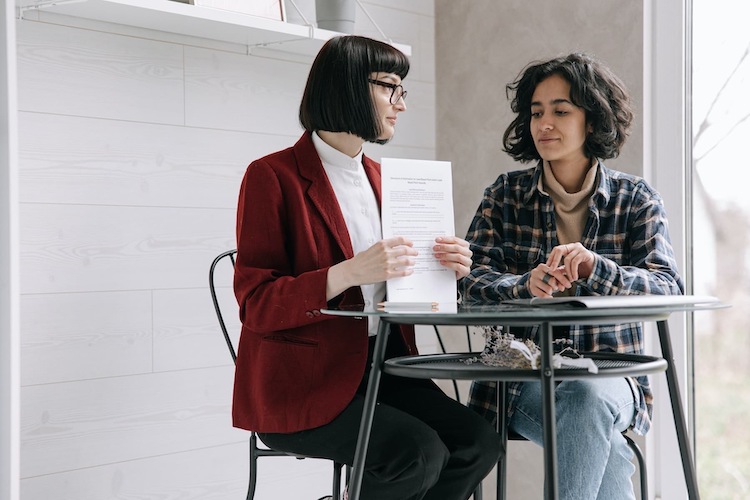
#3 Does The Rent Include Utilities?
It's not always the case that utilities are automatically covered in the rent. Water is frequently included, but the renter is typically responsible for paying for heating, gas, and electricity. If you're worried about the cost of your utilities, ask your local supplier for a quote.
#4 What is The Typical Cost of Utilities if They Are Not Included?
The property manager will probably only be likely to guess, but given the size of the flat, they should be able to estimate how much you'll have to pay separately for any goods that aren't included in the rent.
The typical monthly cost for essential utilities is about $172, which should cover all the basics. But keep in mind that states have different climates and energy prices, so always plan for a little extra.
Should I purchase my own internet? Wi-Fi is rarely available when you move into an apartment. You will need to locate your own internet connection provider. Look for discounts and compare prices from a range of local companies.
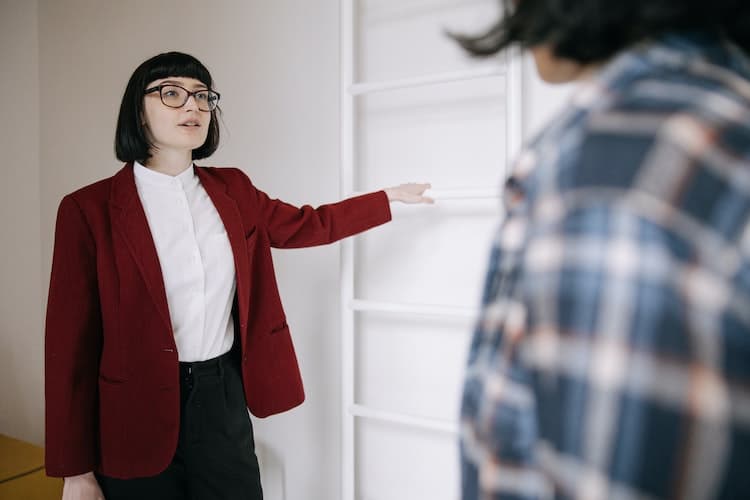
#5 Are Tenants' Insurance Policies Required?
Another item to consider while looking for an apartment is renters insurance. Your belongings are covered by renters insurance in the case of a fire, flood, or theft.
Additionally, it can cover accidents that occur within your residence. Since this kind of coverage typically has extremely low monthly costs, it's a smart idea to include it nevertheless.
Even though having renters insurance is generally a good idea, certain apartments require tenants to have it, so it's crucial to clarify when touring. If you do require renters insurance, it’s a good idea to get on top of it early. It’s not ideal rushing to buy insurance the day prior to moving in, since any delays in processing your policy may mean delays to your move-in date.
#6 In an Emergency, How Are Repairs Handled?
Even if everything seems to be in working order when you have a look around your potential new home, maintenance should always be on your list of inquiries when viewing an apartment.
Find out how urgent repairs are handled. Ask for clarification on whether maintenance is offered all the time or only during certain hours, and understand the typical response time and procedures.
Even better, now is a good opportunity to determine the kinds of repairs that your property manager would require you to perform yourself, for example, changing light bulbs or contacting the electrician. Whatever the procedure, you should be aware of it beforehand to ensure a prompt resolution of any emergency (or regular) demands.
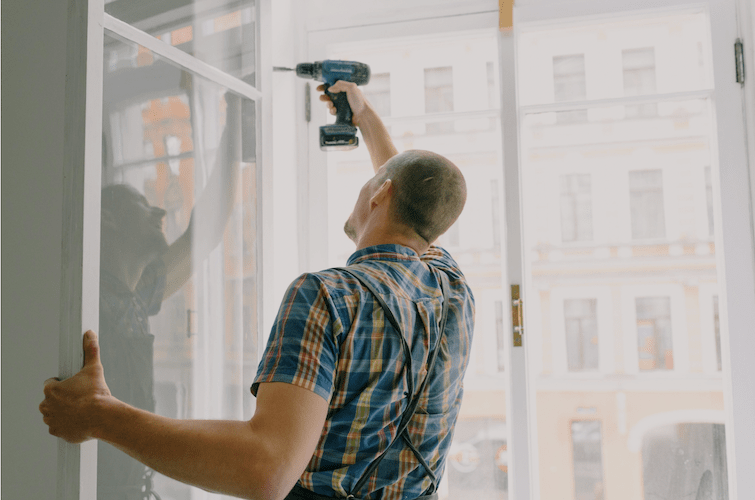
#7 How Safe is The Apartment Building?
Safety is one of the most important things to ask about when touring an apartment. Ask the property manager to go over the security measures during the apartment tour. You should be aware of both internal and external security measures, such as security cameras and guards, or fire and earthquake emergency procedures.
If there is a parking garage, make sure you are comfortable with how you access it from the street and from your apartment.
Additionally, it doesn't hurt to inquire about the area and the general safety of the region. If you're worried, you can look up crime statistics online. Though often, simply speaking with neighbors or taking a stroll through the neighborhood can give you a sense of how secure it is.
It’s important that your apartment has implemented the safety and security measures necessary for you to feel comfortable and safe in your new locale.
#8 Is There a Parking Garage?
Parking will be high on your list of priorities if you have a car. Usually tenants are given the option to rent an apartment with a garage space or lot. This is because street parking can be difficult to access, and costly to pay for separately in many neighborhoods - particularly in bigger cities.
However, a private parking space or pass sometimes attracts an extra fee, so enquire about any expenses related to car ownership. If you live somewhere that isn't especially walkable, or don’t have access to public transport, you might not have a choice. It always helps to plan for the expense up front rather than learning about it afterward.
#9 What's The Pet Policy Like?
Before learning about specifics like pet charges and additional cleaning charges, be sure you're permitted to bring your furry companion along. A non-refundable security or monthly rent is typically required, with various restrictions dependent on the animal.
Never attempt to conceal a pet in a rental when you are aware that it is not permitted. Getting caught might be expensive and force you to give up your pet or the apartment. Check if there are any limitations on the kinds or breeds of animals that are permitted as well.
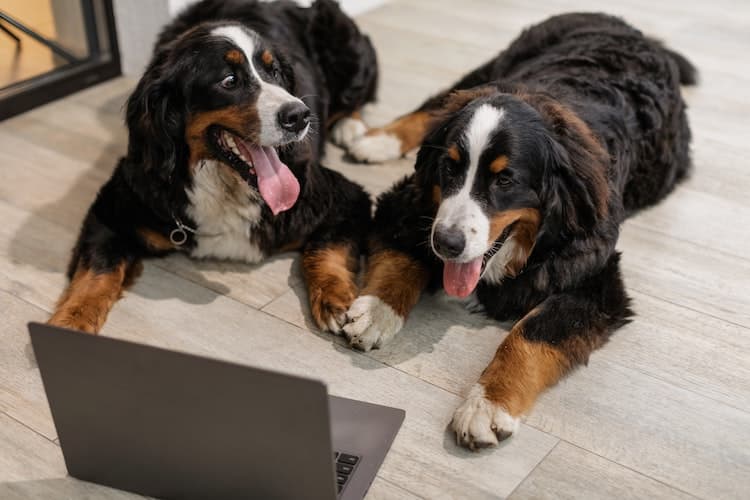
#10 What is Needed to Relocate?
When seeing flats, be careful to enquire about the cost of moving in as every complex handles moves differently.
Are there, for instance, any moving or lift fees? Does parking a moving vehicle on the street require a special permit? On the day of your move-in, what portion of the parking space can you use? Has the management firm blocked it off?
On a busy day, you might have to battle for space or wait in line for the elevator if you move in. If so, try to postpone your relocation by a day or arrive a day ahead to gain an edge.
#11 Are Roommates and Guests Allowed?
Are you planning to move in with your family, to live alone, or considering living with roommates in your new apartment? All three circumstances will require a different discussion with the landlord as you view prospective properties.
If you’re planning to live with a roommate, you’re usually allowed to either sign the lease and sublet it to a friend. In the case that this is not permitted, your roommate and the property manager might need to come in together and sign a revised lease so that both of your initials are on the contract. Sharing the space could also alter how you make rent payments, so it’s best to be clear and upfront with the property manager.
Before your roommate moves in, make sure you discuss expenditure sharing in general with them and that they are aware of the house regulations. Even if you choose to live alone, you might want to create some of your own so all guests know how to respect your space.
#12 How is Subletting Dealt With?
Imagine if you wanted to visit your family for a month when you were between jobs. The best course of action is to sublease because you don't wish to lose your place. But is it legal? Although your contract should make this clear, don't be afraid to approach apartment management or the landlord to elaborate.
Subletting without prior authorization may result in eviction. A further consideration is property damage. If any damage to the apartment is not caused by you, you are nonetheless liable for it if your name is the only one on the lease.
If you do decide to sublease, make sure the tenant is reliable, trustworthy, and respectful of your space.
#13 What is The Penalty For Early Lease Termination?
It's a smart idea to familiarize yourself with the procedure in case you need to terminate your lease. Even if it's not the plan, being aware of what you would need to do in advance will help you be ready for anything.
Especially if you foresee major life changes or travel around frequently for business, choosing a year-long lease may not be the best option. Ask if you can take a month-to-month lease instead, but make sure you are aware of the early termination fees and how much notice you must give if you decide to leave.
#14 How Will I Pay My Rent?
You need to think about more than just how much money you save each month for rent. You need to find a payment method and schedule that works for you and the property manager.
Once it's time to pay rent, the majority of management organizations will present you with a few alternatives. These might involve making payments online or using a service. Since you can usually arrange an auto-draft, this is the simplest method of payment. However, if you're working with a single property owner, find out if there are any restrictions. Even if you deliver or mail a check every month, be sure to have a clear understanding of where it goes, to whom it is intended, and when it is expected to arrive.
#15 What Additional Services Are Offered On-site?
Add additional services to your list of things to ask about when touring an apartment.
Check for the extra amenities on the property after you have viewed the property. Is there a pool? Maybe an onsite laundry or a workout facility? A clubhouse? Find out the opening times and whether any may be reserved in advance for special occasions. Learn how to accomplish this and whether there is an additional cost.
It's helpful to know in advance when and how you may use these extras, but they often only make the bargain sweeter after you've already discovered an apartment you love.
Final Thoughts
There are endless questions to ask when touring an apartment so make sure to prioritize the most important ones.
Getting a "no" on one of your deal-breaker questions can save you time and help you move on to your next apartment. In order to keep track of the answers and make sure you recollect all the important details once you get home, you might even want to consider creating a cheat sheet of inquiries for each apartment tour.
If you need expert guidance in finding the perfect apartment for your lifestyle needs, get in touch with the team at Adelphi.
Contact Us

